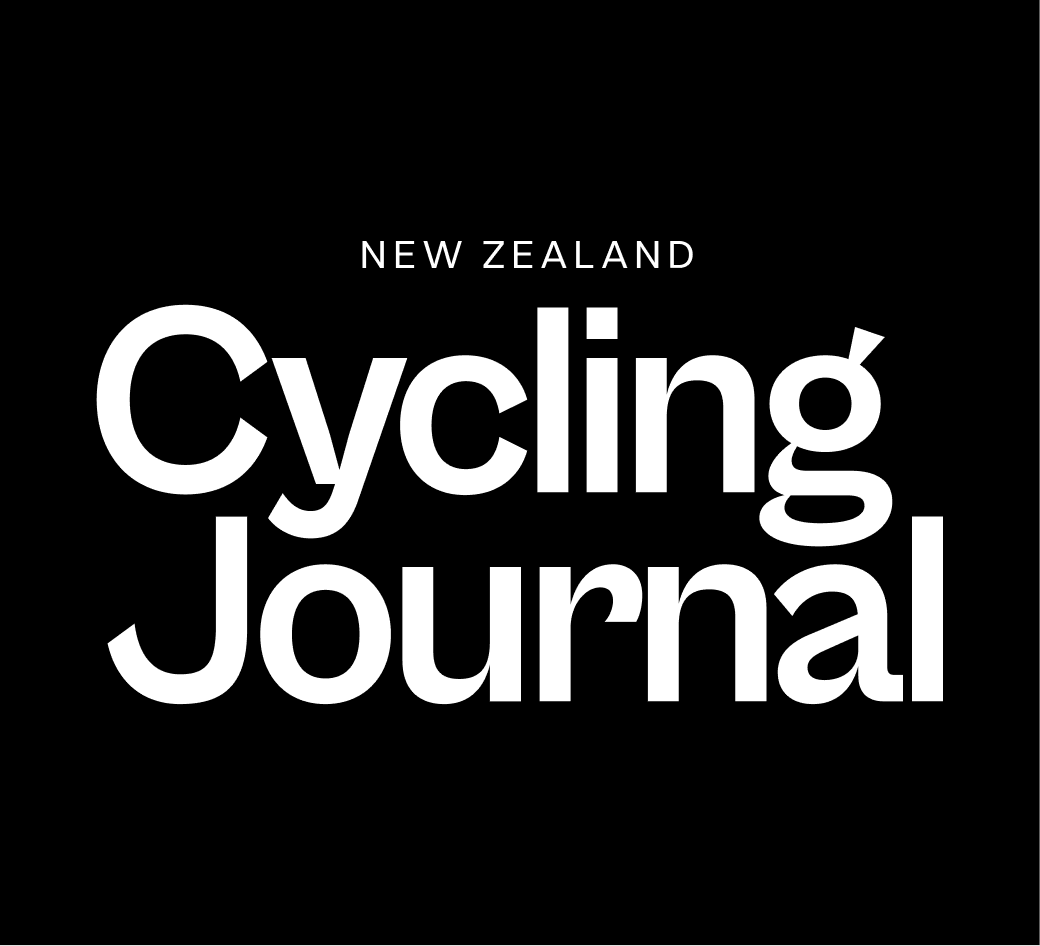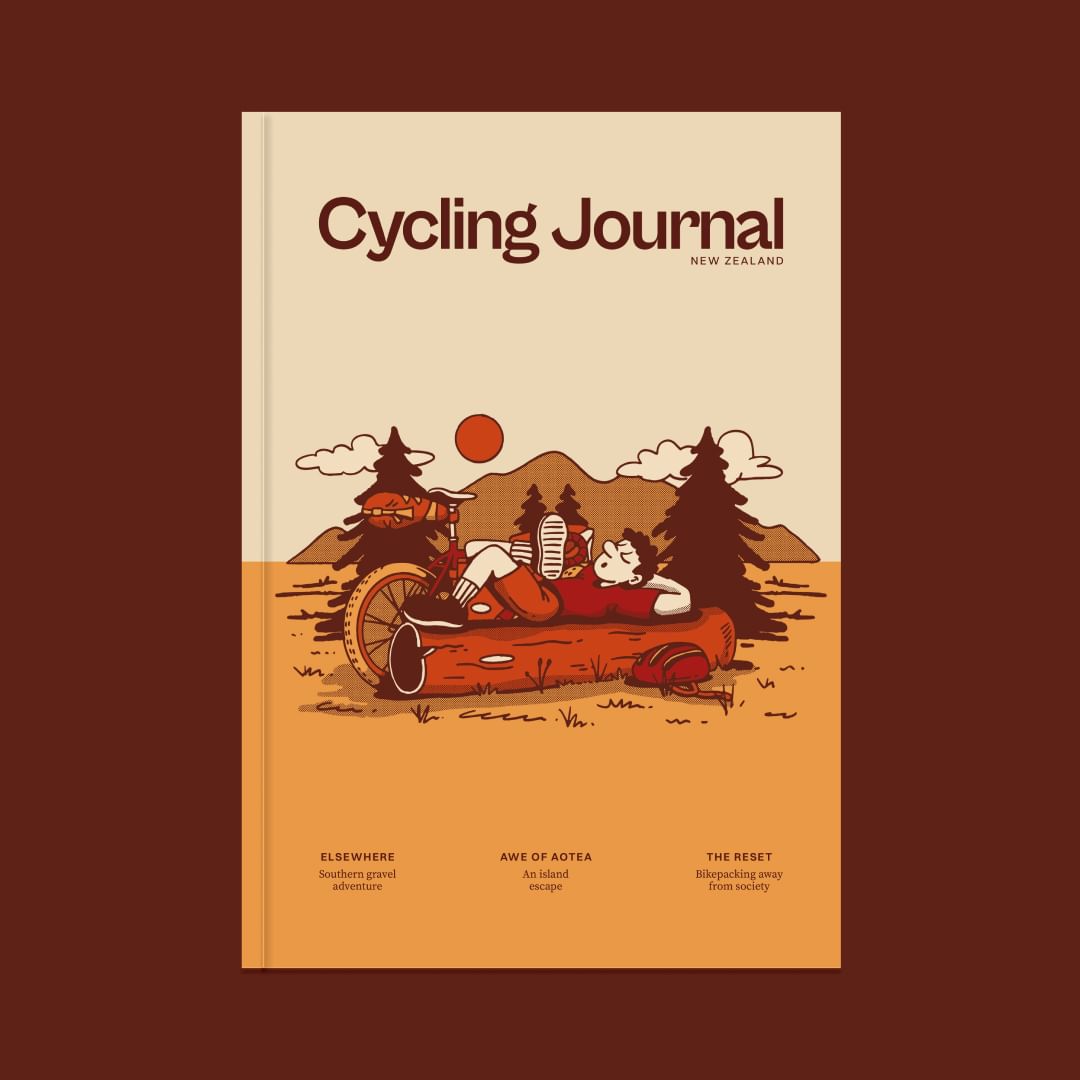Words Ruairi O’Shea
Images Chris Auld
Ally Wollaston is busy. Between messaging her on the evening of her first World Tour victory at the Tour Down Under in January, and speaking to her for this article, over a month has passed before we can find time to chat.
It’s understandable. Wollaston is balancing a career in professional racing on the road with her dream of winning medals on the track at the Paris Olympics in August. At 23, she’s been elected by her fellow riders as a council member of the Cyclists’ Alliance – the union for female cyclists. And, if that isn’t enough, she’s also just finished the third year of her law degree at the University of Waikato.
Every I time look at my phone, she’s won something else.
Between the 12th of January and the 19th of February, Wollaston has won the opening stage of the Tour Down Under on the road, before dominating the UCI Track Nation’s Cup in Adelaide taking victories in the Omnium, Elimination Race and Team Pursuit. She then popped home to take wins in the Omnium, Points, Scratch and Elimination Races, as well as the Team Pursuit, at the Oceania Track Cycling Championships in Cambridge.
Ally is a good example of what can happen when nature and nurture come together. Endurance sport runs in the family; Wollaston’s mother was a marathon runner, while her father has taken part in the iconic Coast to Coast. Ally’s sister Nina was a talented track cyclist in her own right, and their sister Claudia has worked as a performance analyst for Cycling New Zealand. Throw these genes into a school system with a vast road cycling programme and watch what happens.
“In Auckland, in the school, road cycling was massive,” Wollaston tells me. “There was a team time trial series every Sunday for about eight weeks. My sister got involved and being the younger sister that I am, I just wanted to do everything she did.”
Racing did not come naturally, however.
“My first year was really bad. I vividly remember racing at the North Island School Championships. It was one of my first ever races. I couldn’t clip into my pedals, I got dropped in the neutral zone, and I never got back on. I rode the whole thing alone, and I did a lot of riding alone that year because I could never stay with the bunch.”
Things improved slightly in Ally’s second year, where she developed what she describes not as talent, but as grit. Things started to come together. “Once I started to achieve success on the bike, I never looked back. The feeling of winning is addictive, and once I sniffed that out, I didn’t want to let it go.”
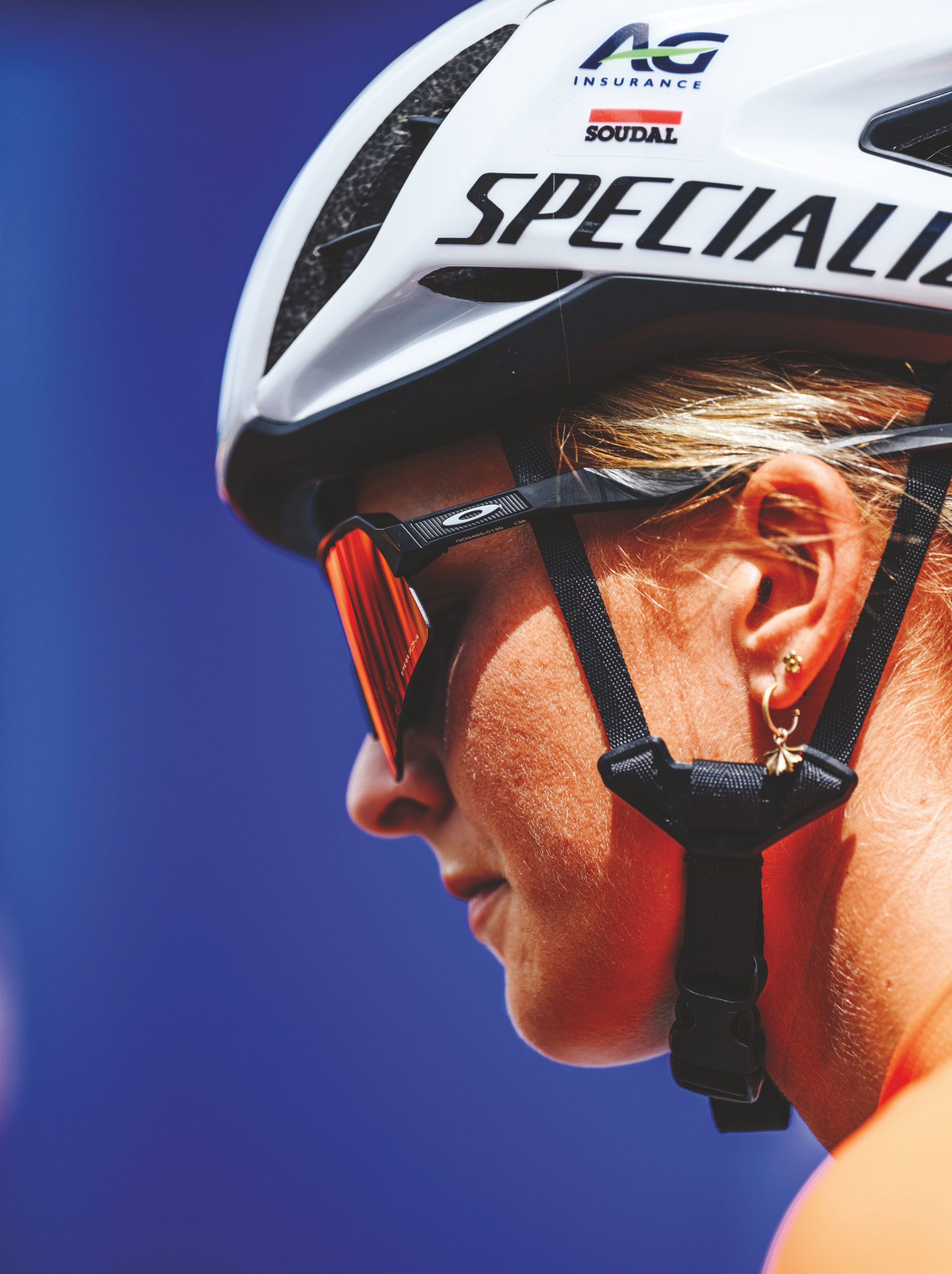
Waiting until the peloton is travelling at its fastest before moving up the bunch is not generally how things are done in professional racing, but it showed that Ally had the power to win in these races.
Ally’s next move was to boarding school in Cambridge, which put her at the heart of New Zealand’s cycling scene and, more importantly, put a velodrome in her backyard. Having seen her sister pass through the elite programme, at 18, Wollaston took the Individual Pursuit title at the Junior World Championships, a victory which served as her ticket to the elite development programme.
With the 2020 Olympic Games a remote possibility, Wollaston had become laser- focused on the track, but when she missed selection – “too young, and not strong enough,” she says – her mind turned to road racing.
Ally found her first professional cycling team the way you might join a local rugby club.
“I started looking into the girls that I was at junior worlds with and the teams they were with. Amelia Sharp and Catalina Soto Campos were at NXTG. I went on their website, clicked on the ‘contact us’ button, and just sent a message saying who I was and showing some results.”
At the time, NXTG (now AG Insurance-Soudal) was an under-23 team run by Natashca Knaven-den Ouden and her husband Servais Knaven – a winner of the muddy 2001 Paris-Roubaix, Tour de France Stage winner and long-time Team Sky Directeur Sportif. Before long, Ally was on a plane to Europe.
“Natascha, the manager of the team, sent me a message within a couple of days, and then I was on a Facetime with the Knavens. After that first Zoom call, I booked a flight within a couple of weeks and then I was there,” Wollaston says.
Landing in a foreign country with no real idea where you’re going is something of a rite of passage for bike riders from outside of Europe’s traditional strongholds, and Ally was no different.
“The first day I got there I didn’t have any data, I didn’t have groceries, I didn’t know where the supermarket was. There was no-one in the house, I couldn’t call home because there was no Wi- Fi. I just thought, ‘What the hell have I done?’”
In reality, Ally settled into her new surroundings pretty quickly, but getting to grips with bike racing in Europe was a different story.
There’s a bit of a misconception that professional cycling is a fitness contest – that whoever has the highest VO2 max or the best power to weight ratio will win a given race – but nowhere is this less true than in Belgian kermesses; long, criterium style races on narrow, sometimes cobbled roads on which young European cyclists cut their teeth.
“I found racing in the peloton really, really hard,” Ally says. “A race in New Zealand never really has what you could call a peloton – there would be maximum 40 riders – but then you get thrown into Belgium with 150 girls and it’s just carnage.” Fitness was not a problem here, but fear was.
“The second I got overwhelmed I would be out the back of the peloton, and I would hang out there the whole day, and try to move up on the outside when the peloton is lined out and there’s a massive space.”
Waiting until the peloton is travelling at its fastest before moving up the bunch is not generally how things are done in professional racing, but it showed that Ally had the power to win in these races. “It was really frustrating,” Wollaston says, “to know that you’re strong enough to be getting results but you can’t do anything because you’re scared.”
Then, in 2022, came the turning point.
At the Bretagne Ladies Tour in May, Ally took her first UCI-level podium on stage one – a result she calls “overwhelming”. This was followed by another two podium finishes in stages three and four, culminating in a third place finish in the General Classification.
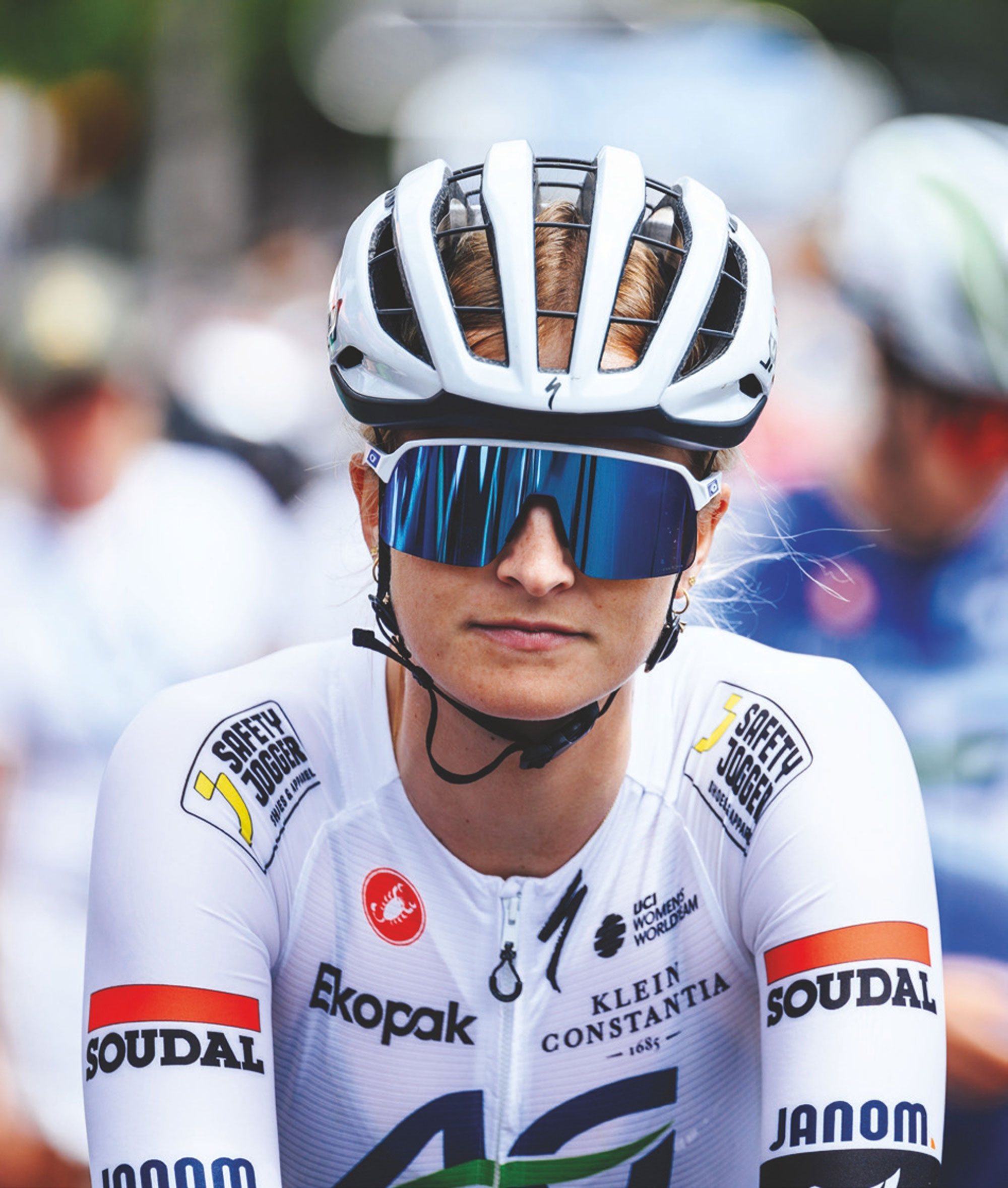
Just as Ally has found her feet at the highest level on the road, her attentions are returning to the track, and her first Olympic Games.
Just a week later, with the legs – and now the confidence – Wollaston took her first professional victory at the GP Morbihan, bridging a gap to Grace Brown and pipping Vittoria Guazzini on the line. It’s a win built on hard work, self- belief, and more importantly, bravery.
“I always had the ambition to win and, deep down, I knew that I could, but putting that together and overcoming my fear of the peloton… it felt farfetched even though I knew I could do it.”
More results followed, with strong all-round performance at the Lotto Belgium Tour seeing Ally take two victories, the points jersey, and a GC podium place. Ally had hit form on the road, and it put her on a collision course with an historic opportunity: the first edition of the revived Tour de France Femmes.
“At the start of the year, I had said I didn’t want to do the Tour because I was all in the for the Commonwealth Games, but when I started getting results the team said ‘look, it’s the first ever Tour de France Femmes, we’d really love you to race.’ Slowly, I realised I really wanted to go.”
A plan was hatched for Wollaston to ride the first three stages of the Tour, before pulling out to go the Commonwealth Games. Less than three months after her first pro victory, Ally was on the start line of arguably the most important women’s cycling event in history.
“It was just amazing,” Wollaston says, “a lot of friends and family don’t understand if I win a UCI- level road race in France, but they understand what the Tour de France is. It was my first ever race with Annemiek van Vleuten and I was riding down the Champs Elysee on her wheel.”
Sadly, a crash on stage two left Ally with a broken wrist. She finished the stage, but the crash ended her Tour, and her chances of a medal at the Commonwealth Games. There are no regrets. “I wouldn’t change it for the world. I didn’t do anything, I didn’t really leave a mark on the race, but just to be there… I’ll remember that forever.”
The year 2023 started with a bang: Wollaston won the curtain-raising criterium at the Tour Down Under, in addition to the Elite National Championships, before taking gold in the Team Pursuit, Elimination Race and Omnium at the UCI Track Nations Cup in Jakarta. Next up, Ally embarked on her first Spring Classics campaign, riding the Ronde Van Vlaanderen, Amstel Gold Race and Liege-Bastogne-Liege before taking a stage victory and the overall at the Festival Elsy Jacobs ahead of former World Champion Marta Bastianelli.
With confidence – and expectations – developed in such a strong first half of the season, Ally went into the second half with ambitions of a stage win at the Giro d’Italia and gold medals at the Glasgow Super World Championships, but she was ultimately left disappointed and exhausted. Speaking to Ally about this time it’s clear that, rationally, she knows she did incredibly well, but defeat still stings.
“Maybe because the season started so well, by the time I got to August, I didn’t have the results I was hoping for,” Wollaston says. “I wanted to get a stage win at the Giro and it didn’t quite come together the way I wanted it to. It was my first World Tour podium, so it was nothing to complain about, but I still had that feeling that I wasn’t quite where I wanted to be.”
Ally backed up her strong performance at the Giro with a silver in the Team Pursuit in Glasgow, but when all you want to do is win, falling short brings disappointment. “When you look back on it, that silver medal was my first elite Worlds medal, but it’s not something I’m really proud of because we went there fighting for the rainbow stripes and we didn’t get them. We didn’t execute the ride we wanted to and that’s what hurts the most.”
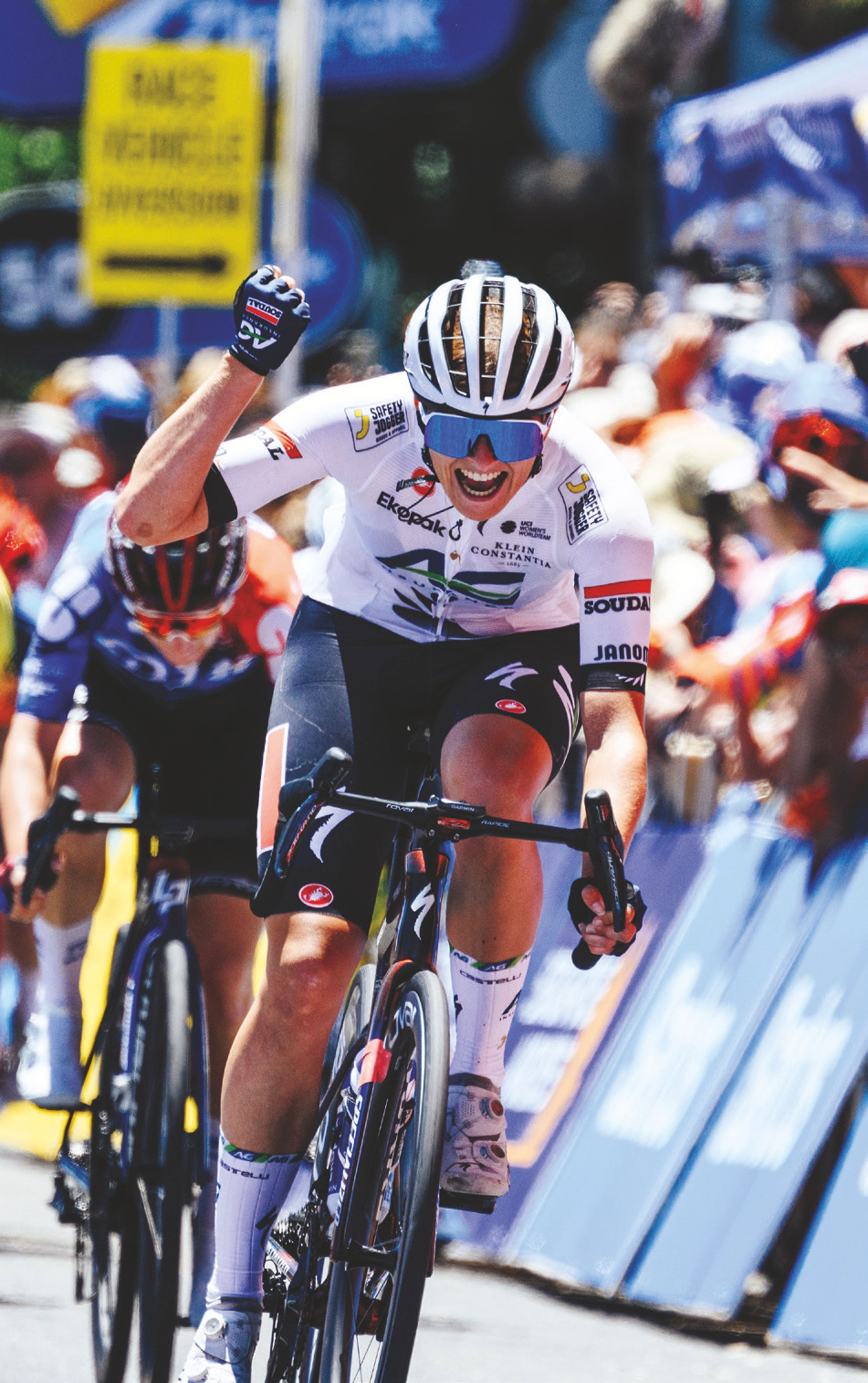
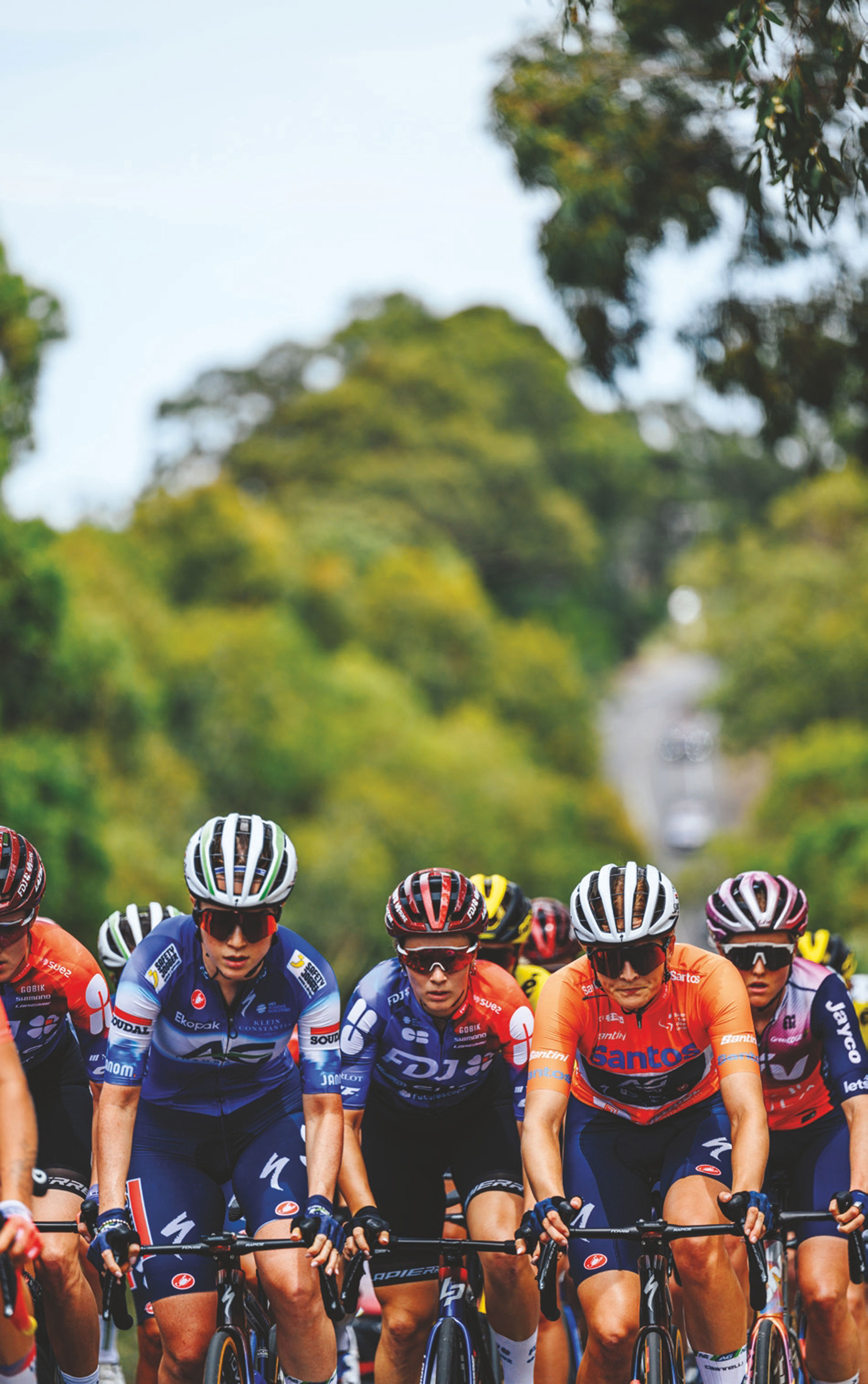
Ally is a talented bike racer, but in speaking about her career so far, it’s her mental characteristics that are most impressive.
Things came to a head on the Simac Ladies Tour in the Netherlands, where her team demonstrated the type of support that had been so valuable to Ally over the past three seasons. “On the last stage, I was just crying 10 minutes in. I couldn’t do it anymore and I needed a break. I was supposed to do a couple more races, but the team just said, ‘go back to Spain, put your feet up, and start your season off now’. I said, ‘I will absolutely do that’.”
So far, both Ally, and her team are reaping the benefits of shutting down last season early.
Ally’s win in the opening stage of the Tour Down Under was not just her first Women’s World Tour victory, it was the first at World Tour level for AG Insurance-Soudal. It was also – by the sounds of things – an example of some world- class reverse psychology from Servais Knaven.
“Servais had noticed I was putting too much pressure on myself. He pulled me aside before our team meeting and told me that he was going to say we were aiming for a podium with me, but he wouldn’t say we were going for the win. When I heard it in the meeting, it didn’t sit well with me, because I race to win…. do you not think I can win!?”
When you watch the highlights back, you don’t see how much it means as much you hear it, with Ally’s scream picked up in high definition as she crossed the line in her national champions jersey. “I probably didn’t think about it being a World Tour race but immediately it was just like, ‘Holy shit! I just won a World Tour race’.
For Knaven, speaking to Rachel Jary of Rouleur, the win was a practical demonstration of the team’s philosophy, “Ally came to us three years ago begging for a contract and we gave her a chance; that’s what we stand for. It’s easy to always sign the names that everyone knows, but our goal – and what we like – is to give chances to more good riders from different countries.”
Having picked up their first ever World Tour win on stage one, the team didn’t wait long for their second, guiding their Australian climber, Sarah Gigante, to a win up Willunga Hill and taking the overall victory. Gigante’s difficulties riding in the bunch are well- documented, and Wollaston’s understanding of her teammate’s struggles played a key role. “Before the stage, we had talked about helping Sarah all day and I just naturally fell into that role. A lot of my teammates are used to fighting at the front, but I understood the way she was racing and why, because I’ve been there.”
Just as Ally has found her feet at the highest level on the road, her attentions are returning to the track, and her first Olympic Games. Having experienced burnout in 2023, this year features a reduced road programme in a bid to give Wollaston the best possible preparation for the Games.
“Jolien (D’hoore – Olympic bronze medallist and another of Ally’s Directeur Sportifs) has been through the whole Olympic cycle before and she knows what works and what doesn’t,” Ally says.
“The team know my goal is the Olympics, and they’ve tailored a whole programme around what will work for the Games. They don’t get a huge amount from me being on the track, so that they’re willing to tailor my programme to suit my needs speaks volumes about the team.”
And things are going well so far.
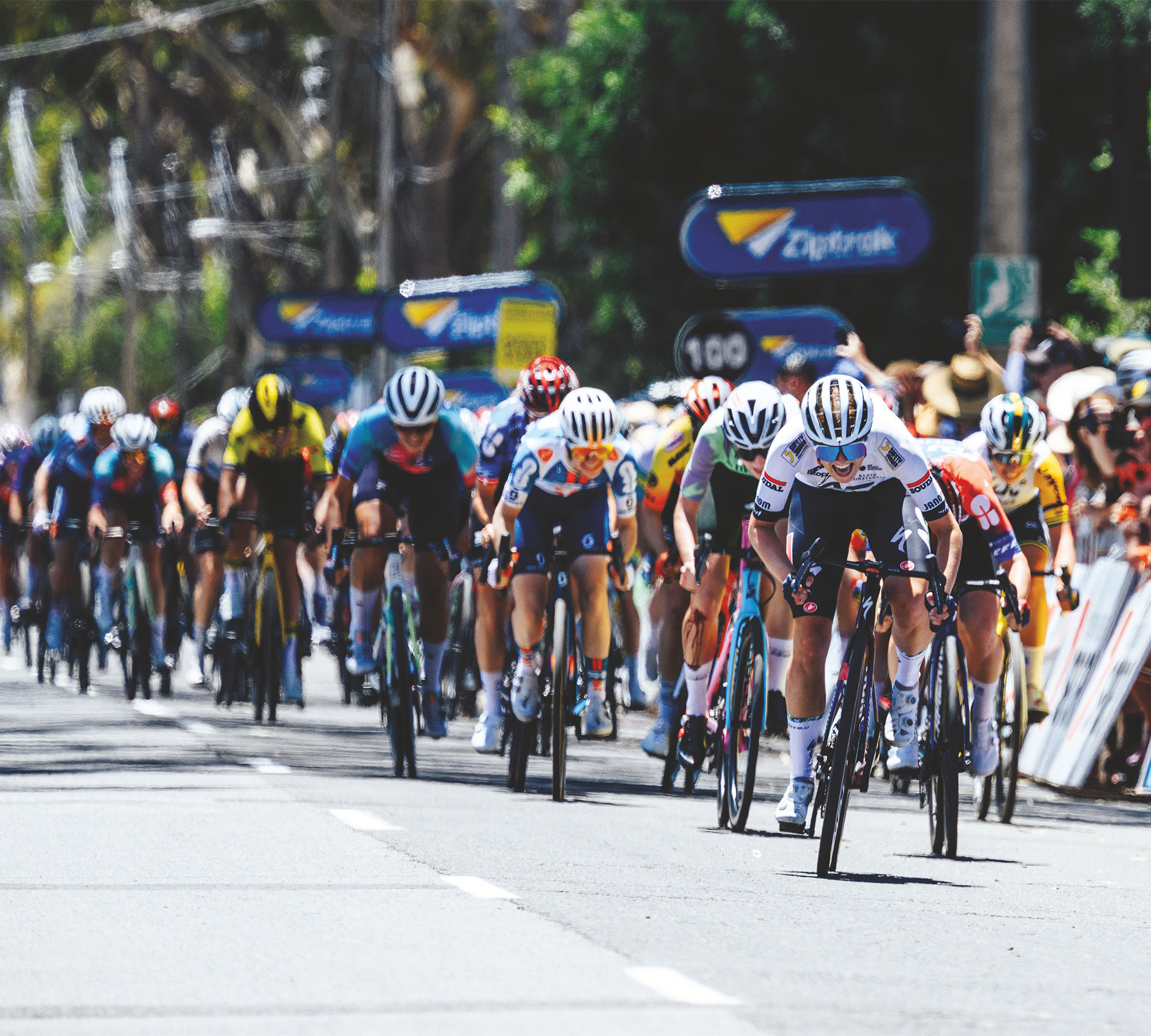
“The team know my goal is the Olympics, and they’ve tailored a whole programme around what will work for the Games. They don’t get a huge amount from me being on the track, so that they’re willing to tailor my programme to suit my needs speaks volumes about the team.”
In early February, New Zealand’s women beat reigning World Champions, Great Britain, to take gold at the Team Pursuit at the UCI Track Nations Cup in Adelaide. Later that same evening, Wollaston put on a tactical masterclass in the Elimination race to win gold against America’s Jennifer Valente. Two days later, she took victory in the Omnium, defeating five-time world and double Olympic champion, Katie Archibald, in the process.
It’s Ally’s first Games, but her feet are firmly on the ground.
“It was a huge learning for me at the World Championships last year, not to buy into the gravity of the event because it can get overwhelming. I’m just trying to plan really well this year and utilise the time I have in New Zealand with the team pursuit girls, to dial in as much as I can.”
Ally is a talented bike racer, but in speaking about her career so far, it’s her mental characteristics that are most impressive. There’s always something to learn, whether that’s developing resilience while suffering in school races, overcoming fear of the bunch to take victories, or dealing with the disappointment of failure. Ally’s got the legs to take medals this summer. If she doesn’t, you get the sense it will only make her better.
But Ally races to win. I wouldn’t bet against her.


